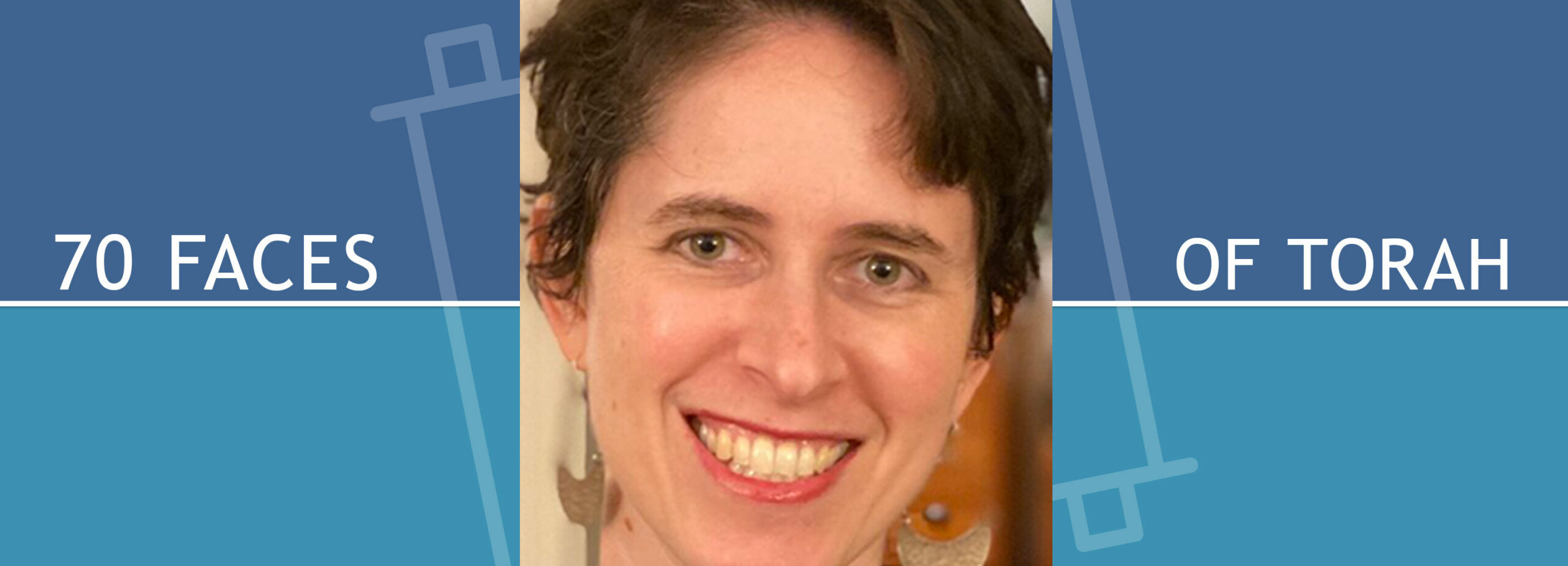Genesis Family Across the Divide

Parshat Vayigash, Genesis 44:18-47:27
The refugee stood before the government official and pleaded for mercy. His plight was desperate. He came with a large family, seeking asylum from conditions in his home country. Loved ones were still back home, awaiting word. Returning home without help meant death.
There is a new term in the international humanitarian scene: climate refugee. As drought, flooding, crop failures and water shortages become more frequent, large mobilizations of people flee their homes, looking for food, for water, and for safety from the violence that erupts in areas plagued by environmental insecurities. In this week’s Torah portion, we can read our mythic Israelite ancestors as an ancient sort of climate refugee, fleeing a massive seven-year drought in Canaan, seeking mercy in the well-stocked empire of Egypt.
When Judah, a refugee from Canaan, pleads with the Egyptian official, he has no idea he is pleading with his own brother, Joseph. Joseph, the one in power, knows the man across from him is his brother. But it takes time and trials for him to admit to that knowledge.
What an incredible metaphor for our global situation today! As the climate crisis increasingly destabilizes parts of the world, the question is not whether climate change will affect us, nor whether climate change is an issue of human rights, nor whether some will be more fortunate than others – the answer to all of these is a clear “yes”. The question for us is how we can be part of a story of healing in a time of climate change, political upheaval, and the devastation of the Syrian war—which was partly catalyzed and exacerbated by extreme drought.
When Judah approaches Joseph, something amazing happens: a family that has been estranged recognizes itself again. The Torah tells us, “vayigash Yehuda”–Judah drew near to Joseph to make his final speech. Soon after, Joseph uses from the same Hebrew root, revealing himself and imploring his brothers “g’shu elai” – draw near to me. And the Torah tells us, vayigashu, they drew near. It is in this mutual drawing close that the healing begins in a family torn by jealousy, suspicion, and betrayal.
How can the Josephs of the world, those of us who find ourselves well-fed and in relative power, draw near to the Judahs of the world, those who find themselves at the very edge of devastation and death? How do we recognize each other as brothers across the great divide of global inequity? How do we welcome the refugee?
After the Boston Marathon bombing, I felt deeply agitated and upset. I grew up in Boston, and have lived here almost my entire life. The attack on my home city hit my heart harder than other terror attacks around the country or world. Part of the upset was that I saw beauty in the world, and I couldn’t reconcile it with the amount of suffering, violence, and mortality I now saw around my home. I brought this question to a rabbi and teacher, and he said to me, “The world is beautiful, but it is not safe.”
These words changed my life, because in them I found permission to let the world be what it is: a place where everyone I love is mortal, and where we are fundamentally physically vulnerable no matter what precautions we take. But I also committed myself more fully to the emergence of beauty in an unsafe world. To reach across and recognize the other, in their desperation and pain, as my brother, my sister, is to say “I am also mortal. I am not insulated from life’s risks, and as your family I see myself in you. If I have more than what I need, it is for the sake of being your comfort and aide in this unsafe world.” This recognition is beauty in action.
The US military now calls climate change a “threat multiplier” – meaning that, as extreme weather events become more common, regional instability increases and security threats increase with it. Given the rise of ISIS in the wake of the worst drought on record in Syria, it is a horrible irony that the brutal attacks in Paris led to the cancellation of large peaceful demonstrations for the UN COP21 climate negotiations. This winter, Paris has become the epicenter of both global terror and global hope. Our evening liturgy asks God, u’fros aleinu sukkat sh’lomecha, spread over us your shelter of peace. The root of the word “spread”–peh-resh-samech,–with the same sounds as Paris, can focus our prayers. May we somehow be part of the healing. May we find love even in a world containing violence. May the peace of recognition and reconciliation between Judah and Joseph illuminate Paris, and from there the world.
Shoshana Meira Friedman, 2014 graduate of the Rabbinical School of Hebrew College, is assistant rabbi for engagement at Temple Sinai in Brookline, Mass.
Further reading:
Has the era of “Climate change refugee Begun?” (Washington Post)
Two Degrees: Does climate change contribute to violence and war? (CNN.com)
Researchers Link Syrian Conflict to a Drought Made Worse by Climate Change (New York Times)
Why Climate Change and Terrorism Are Connected (TIME)

